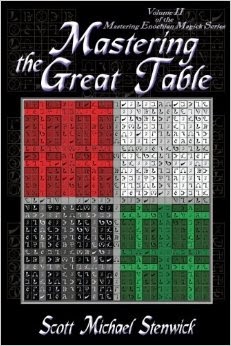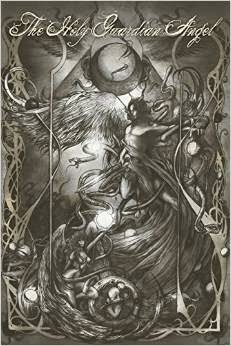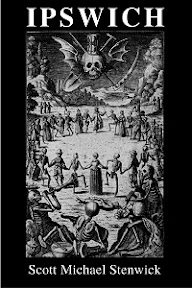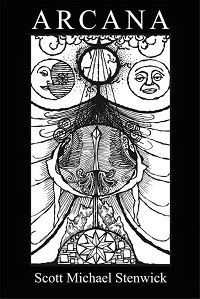New Republic has a review up today of a new book on psychic experiments conducted by the United States Government, Phenomena: The Secret History of the U. S. Government’s Investigations Into Extrasensory Perception and Psychokinesis by Annie Jacobsen. I'm including the Amazon link because if you take a look at the critical reviews, there are several that point out inconsistencies and omissions in the narrative that sound legitimate. The reviewer, on the other hand, appears to be a smug capital-S Skeptic who seems to generally like the book itself, but spends most of his time going on about what a waste of time all these programs were because, of course, psychic abilities don't exist.
Later in the article, which I'm not going to quote, the reviewer tries to debunk remote viewing by citing a single failed experiment. However, if you dig into the Stargate material, there were also plenty of successful experiments that produced some reliable intelligence. I am not convinced everyone can be trained to do remote viewing effectively, but I think anybody talented enough to do practical magick should be able to develop a reasonable level of skill at it. One of the problems with trying to deploy these abilities on a large scale is identifying talented people in the first place who are worth the investment of time and money.
I guess "moral clarity" to this reviewer means that the book should make it clear that the James Randi, capital-S Skeptic position is obviously correct and that any believer in psychic or paranormal phenomena is hopelessly deluded. Obviously, I don't subscribe to that viewpoint. Personally, I like that the author of the book took a more neutral position, because arguing over the existence of psychic powers can consume a great deal of energy and is ultimately boring. People experience them. Of course they exist in that sense. So what we should be trying to figure out is what's going on, not "whether it's real." As a point, the Skeptic favorite "mass hysteria" is precisely as poorly understood as "psychic ability," and is really no more credible as I see it.
What the reviewer omits here, and maybe just doesn't know, is that Rhine's laboratory started researching parapsychology in the 1930's and had compiled an unbelievable amount of data that he claimed proved psychic powers were real by the 1950's. In college I remember read an article from the period by a researcher who basically admitted that Rhine had compiled enough data for his work to be convincing on virtually any other subject, but since researcher in question didn't like Rhine's findings, he couldn't accept them. Sadly I don't remember the reference, but that's neither real skepticism nor real science. That's just a bunch of academic politics.
To be clear, some of Rhine's experiments did suffer from methodological flaws that were identified by later researchers. But that is where criticism needs to be directed when examining work like this. In science, "I don't like it" is basically bullshit. You're supposed to see if you can replicate the work exactly and get the same results, and if you can't, figure out what was done wrong in the original research. Saying "I don't like it" or accusing researchers of fraud only because of the subject matter of their research - like Randi Skeptics do all the time - are little more than lazy dismissals.
As a point, MKULTRA had nothing to do with psychic powers and I'm not sure why the reviewer decided to throw it in here. MKULTRA involved using various psychedelic compounds to enhance interrogations, condition subjects, and aid in mind control and brainwashing. For a reviewer who is clearly convinced of his opinion regarding all this "psychic" stuff, that's a pretty stupid mistake. It also adds nothing to the article aside from throwing in some disinformation, and were I conspiracy-minded I might try to argue that it's a deliberate attempt to obscure the truth. But at the same time, I find it a good rule of thumb to never ascribe to malice what can be adequately explained by stupidity. Or, I suppose, closed-mindedness.
These statements are basically correct, in that the psychic research programs were largely supported by the Cold War and the belief that the Soviets could use it to gain some sort of edge. As far as I can tell, the Soviets did identify some people who had some legitimate talent. Unlike the American programs, the Soviets went out of their way to track down talented individuals and worked with them exclusively. But they also put out a lot of disinformation, trying to convince the United States government that they were much further along in weaponizing psychic powers than they really were. The fact is that anything paranormal or magical is incredibly difficult to weaponize. The effects just aren't reliable enough, and they are too dependent on individual operators for any sort of "program" to work on a massive scale.
That's one reason Project Stargate was shut down, in addition to the political situation at the time - not because none of their remote viewers were producing good information, but because they could never get their protocol to turn anyone into an effective remote viewer to work. Since we don't have a clear understanding of how consciousness works, it will always be a variable that no cookie-cutter program can possibly address. What we would really need is to gauge psychic potential in some capacity so we would know who to recruit, which is really difficult without the still-mythical "consciousness measure." Otherwise, you wind up stuck with a handful of talents and way more work than they can possible handle.
And why this should be an even marginally controversial point of view confuses me, frankly. For example, the military's "Project Jedi" tried working with members of Special Forces as their pool of subjects. However, we know that (A) cognitive talents and physical/athletic talents are completely unrelated, and even general physical condition only weakly correlates with some cognitive capacities, (B) the highest level one can reach at literally all human skills is a combination of inborn talent and diligent practice, and (C) effective psychic and magical abilities basically constitute the absolute peak of human cognition.
The New Age movement really likes the egalitarian notion that "we're all psychic," meaning that anyone can develop these abilities to a high level. But if you take A - C above into account, it should be clear that any program that tries to turn random people into effective psychics is going to be about as successful as a program to turn random people off the street into, say, elite Olympic sprinters. That's another skill for which you flat-out need talent in order to get anywhere. I could have had a personal trainer from the time I was a small child and spend all my time running, and I still would never have been able to do it. On the other hand, if you're looking for somebody who can cast a working spell, I'm your guy.
This experiment is only one of the strange stories—many of them recently declassified—in Annie Jacobsen’s Phenomena: The Secret History of the U. S. Government’s Investigations Into Extrasensory Perception and Psychokinesis. As with her previous books on Area 51, Operation Paperclip (the secret project to bring Nazi rocket scientists to the U.S. after the war), and DARPA (Defense Advanced Research Projects Agency, which develops new technology for the Defense Department), this one begins with the fallout of World War II and the extreme measures the military-industrial complex took to unlock and weaponize psychic abilities in the early days of the Cold War. Spanning over 50 years, Jacobsen’s tale takes us from the immediate postwar years to the CIA’s experiments in the 1960s and ‘70s. The Defense Department, she tells us, began its own experiments in the 1980s and ‘90s, before their final incarnation, Project Stargate, was finally decommissioned in 1995.
Later in the article, which I'm not going to quote, the reviewer tries to debunk remote viewing by citing a single failed experiment. However, if you dig into the Stargate material, there were also plenty of successful experiments that produced some reliable intelligence. I am not convinced everyone can be trained to do remote viewing effectively, but I think anybody talented enough to do practical magick should be able to develop a reasonable level of skill at it. One of the problems with trying to deploy these abilities on a large scale is identifying talented people in the first place who are worth the investment of time and money.
Although Jacobsen’s book demonstrates an alarming pattern of government activity, the phenomena themselves are what makes her book so fascinating, and often troubling. “My intention … for this book,” she writes, “was not to prove or disprove anyone or any concept, but to report objectively on the government’s long-standing interest in ESP and PK phenomena.” That being said, she cuts these charlatans a great deal of slack while subtly undermining their critics, creating a reading experience that’s alternately frustrating and exhausting. And while she couldn’t have predicted this before finishing the book, Phenomena arrives at the beginning of a presidency that is thriving on conspiracy, distortion of fact, the discrediting of reliable sources, and outright paranoia. With the President of the United States quoting the National Enquirer as a legitimate news source, we’re in desperate need of a thorough account of the overlap between the government and the occult—but given our current climate, such a book also requires greater moral clarity.
I guess "moral clarity" to this reviewer means that the book should make it clear that the James Randi, capital-S Skeptic position is obviously correct and that any believer in psychic or paranormal phenomena is hopelessly deluded. Obviously, I don't subscribe to that viewpoint. Personally, I like that the author of the book took a more neutral position, because arguing over the existence of psychic powers can consume a great deal of energy and is ultimately boring. People experience them. Of course they exist in that sense. So what we should be trying to figure out is what's going on, not "whether it's real." As a point, the Skeptic favorite "mass hysteria" is precisely as poorly understood as "psychic ability," and is really no more credible as I see it.
The quest for extrasensory perception, an outgrowth of the nineteenth and early twentieth century Spiritualist movement, had begun in the 1930s, mainly with Duke University’s parapsychology experiments, conducted by J. B. Rhine. But in the wake of World War II, the US government began looking for ways to influence and control human behavior, and, in addition to traditional psychological tactics, attention increasingly turned to parapsychology, as well.
What the reviewer omits here, and maybe just doesn't know, is that Rhine's laboratory started researching parapsychology in the 1930's and had compiled an unbelievable amount of data that he claimed proved psychic powers were real by the 1950's. In college I remember read an article from the period by a researcher who basically admitted that Rhine had compiled enough data for his work to be convincing on virtually any other subject, but since researcher in question didn't like Rhine's findings, he couldn't accept them. Sadly I don't remember the reference, but that's neither real skepticism nor real science. That's just a bunch of academic politics.
To be clear, some of Rhine's experiments did suffer from methodological flaws that were identified by later researchers. But that is where criticism needs to be directed when examining work like this. In science, "I don't like it" is basically bullshit. You're supposed to see if you can replicate the work exactly and get the same results, and if you can't, figure out what was done wrong in the original research. Saying "I don't like it" or accusing researchers of fraud only because of the subject matter of their research - like Randi Skeptics do all the time - are little more than lazy dismissals.
In the early 1950s, the Defense Department tasked Henry “Andrija” Puharich with locating mushrooms that they believed might unlock psychic powers (a project the CIA was also working on, under the codename Project MKULTRA). During this time Puharich was also researching faith healers, though much of his early research is still classified by the Atomic Energy Commission. Eventually, Puharich began exploring ESP and psychokinesis or PK (the ability to move objects with one’s mind), and began researching test subjects who appeared to have psychic potential.
As a point, MKULTRA had nothing to do with psychic powers and I'm not sure why the reviewer decided to throw it in here. MKULTRA involved using various psychedelic compounds to enhance interrogations, condition subjects, and aid in mind control and brainwashing. For a reviewer who is clearly convinced of his opinion regarding all this "psychic" stuff, that's a pretty stupid mistake. It also adds nothing to the article aside from throwing in some disinformation, and were I conspiracy-minded I might try to argue that it's a deliberate attempt to obscure the truth. But at the same time, I find it a good rule of thumb to never ascribe to malice what can be adequately explained by stupidity. Or, I suppose, closed-mindedness.
Already well underway in period immediately after World War II, this paranormal research was greatly accelerated after a woman named Ninel Kulagina appeared on Russian TV, beginning in the 1960s, moving objects with her mind. Kulagina’s feats may well have been staged (U.S. analysts couldn’t tell for sure), but she spooked them nonetheless, leading to a joint intelligence assessment by the Defense Department on the “Soviet psychoenergetic threat.” Because much of this still remains classified, it’s not always clear how high up these directives went, or who exactly was aware in all cases of how much energy was being spent on this nonsense. The picture that does emerge, though, is a Cold War government terrified that the Soviet Union was developing an edge in any technology, be it normal or paranormal, and one willing to throw money just about anywhere so long as it meant staying ahead of the Russians.
These statements are basically correct, in that the psychic research programs were largely supported by the Cold War and the belief that the Soviets could use it to gain some sort of edge. As far as I can tell, the Soviets did identify some people who had some legitimate talent. Unlike the American programs, the Soviets went out of their way to track down talented individuals and worked with them exclusively. But they also put out a lot of disinformation, trying to convince the United States government that they were much further along in weaponizing psychic powers than they really were. The fact is that anything paranormal or magical is incredibly difficult to weaponize. The effects just aren't reliable enough, and they are too dependent on individual operators for any sort of "program" to work on a massive scale.
That's one reason Project Stargate was shut down, in addition to the political situation at the time - not because none of their remote viewers were producing good information, but because they could never get their protocol to turn anyone into an effective remote viewer to work. Since we don't have a clear understanding of how consciousness works, it will always be a variable that no cookie-cutter program can possibly address. What we would really need is to gauge psychic potential in some capacity so we would know who to recruit, which is really difficult without the still-mythical "consciousness measure." Otherwise, you wind up stuck with a handful of talents and way more work than they can possible handle.
And why this should be an even marginally controversial point of view confuses me, frankly. For example, the military's "Project Jedi" tried working with members of Special Forces as their pool of subjects. However, we know that (A) cognitive talents and physical/athletic talents are completely unrelated, and even general physical condition only weakly correlates with some cognitive capacities, (B) the highest level one can reach at literally all human skills is a combination of inborn talent and diligent practice, and (C) effective psychic and magical abilities basically constitute the absolute peak of human cognition.
The New Age movement really likes the egalitarian notion that "we're all psychic," meaning that anyone can develop these abilities to a high level. But if you take A - C above into account, it should be clear that any program that tries to turn random people into effective psychics is going to be about as successful as a program to turn random people off the street into, say, elite Olympic sprinters. That's another skill for which you flat-out need talent in order to get anywhere. I could have had a personal trainer from the time I was a small child and spend all my time running, and I still would never have been able to do it. On the other hand, if you're looking for somebody who can cast a working spell, I'm your guy.

























No comments:
Post a Comment